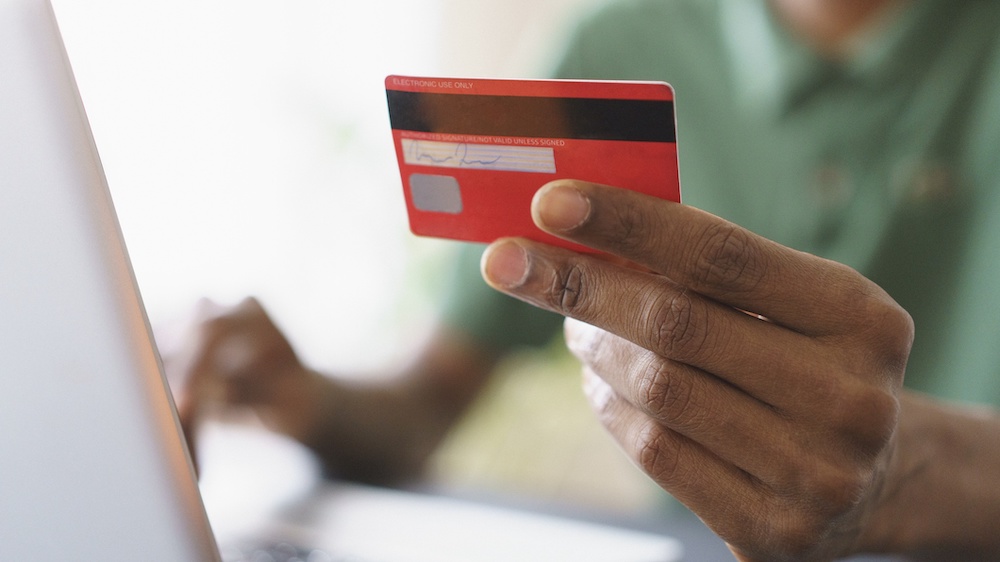If you’re interested in sharing your opinion on any cultural, political or personal topic, create an account here and check out our how-to post to learn more.
Opinions are the writer’s own and not those of Blavity's.
____
Even in this fractured and contrarian time, Americans are at least united in one noteworthy way: they cite their top banking complaint as excessive and hidden fees. The Consumer Financial Protection Bureau (CFPB) actually reports it being the banking issue that receives the most complaints. And Rebecca Borné, senior policy counsel at the Center for Responsible lending states, "The fees have become somewhat of a cash cow [for banks] over the past 20 years."
Still, even in their unified dislike of bank fees, Americans are decidedly unequal. Black and Latino consumers pay about twice the amount in banking fees as white Americans, according to a Bankrate study. Specifically, Black adults report shelling out an average of $144 a year in checking account fees. Latino adults report paying even more, an average of $168 a year, according to a CNBC report.
Unfortunately, these elevated banking fees are getting worse for everyone. According to the Center for Responsible Lending, Americans paid a record amount in overdraft fees this year, and large U.S. banks extracted $11.68 billion in overdraft fees alone from their customers’ accounts last year. The total does not even include credit unions or smaller institutions with under $1 billion in assets. One billion dollars a month in overdraft fees is a massive amount of money that could instead be going to pay for bank customers’ necessities of life.
And now, according to Business Insider, banks might be facing a showdown on these fees because of a growing focus from legislators and regulators. The CFPB is considering stepping in to reduce the financial burden of overdraft fees on consumers, a practice that has long been in the regulator’s crosshairs due to consumer dissatisfaction.
For most Americans, now is just a terrible time to endure these massive and burdensome expenses. Many are still struggling, despite billions of dollars in relief money from federal and state governments, according to the new research from NPR, the Robert Wood Foundation, and the Harvard T.H. Chan School of Public Health. "What we have here is a lot of people who are still one step from drowning financially," said Robert Blendon, Professor of Health Policy and Political Analysis, Emeritus, at the Harvard T. H. Chan School of Public Health.
Findings from the NPR study include:
- 38% of households across the nation report facing serious financial problems in the past few months.
- Among Latino, Black and Native American households, more than 50% had serious financial problems, while 29% of white households did.
- This disparity is echoed in many other poll findings, with minority families bearing a disproportionate share of the pandemics' socio-economic impact.
But imagine for a minute if banks developed a fairer business model that wiped out fees altogether. This is far from impossible. In fact, I’m proud to be associated with a financial institution that has done just that. Launched this year, Fair is a neobank that offers a new model for handling personal banking: a transparent membership that pays for itself many times over. This membership model can save consumers thousands of dollars in fees, money that millions of them need just to make ends meet.
Fair membership has multiple additional benefits that can help their customers in these tough times, including a wealth-building investment feature that can return annual dividends of up to 4%. According to NerdWallet, the best savings accounts are currently only paying consumers between 0.2% and 0.6%. Fair’s wealth-building accounts pay up to tenfold that rate.
The brainchild of Founder & CEO Khalid Parekh, Fair’s business model was created to help ease the confounding banking challenges that Parekh faced when he emigrated to the U.S. over 20 years ago as well as to meet traditional halal requirements. You see, in halal banking, an account must not charge or earn interest. So instead, Fair pays dividends to members, a form of profit-sharing based on assets generated from the investment of their pooled funds.
In this manner, Fair’s membership-driven model offers solutions for all Americans, including underserved communities that often pay excessive bank fees or even get completely pushed out of traditional banking services. This model works to make real change for the better. And with more than half of Americans lacking an adequate emergency fund and the country still struggling with a once-in-a-century pandemic, improved, humane banking solutions would be a much-needed game-changer for many.
____
Samuel P. Golden is an Independent member of the Fair Fintech, Inc. Board of Directors and former Ombudsman at the Office of the Comptroller of the Currency.
